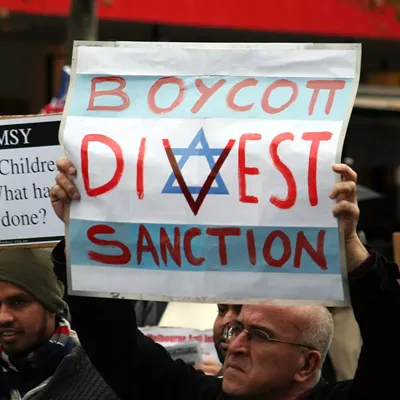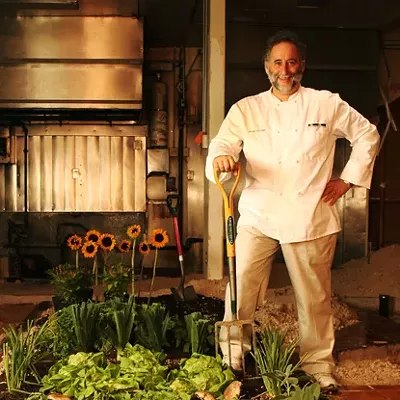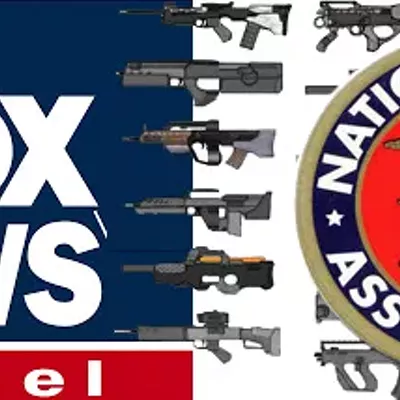Gordon caught a ride to Israel with the Birthright program for young American Jews. Now she works for the International Solidarity Movement, an activist organization that protests the Israeli occupation of the West Bank and Gaza Strip. Often times, these activists act as human shields during conflicts between the Israeli military and Palestinians. In recent months, several foreign activists have been killed by Israeli soldiers, spawning international criticism of Israeli tactics.
Lora is stationed in a Rafah, a town in the Gaza strip where the Israeli military is bulldozing Palestinian homes to clear the way for an immense wall to separate Israeli settlers from Palestinian communities. I fed her a pasta dinner one afternoon while in Jerusalem. In exchange, she granted this interview.
Following the initial two-week trip, what did you do with yourself?
I stayed as a volunteer with Livnot U'Lehibanot for the next month, making art with underprivileged teens, painting the houses of terror victims, and developing a close relationship with a 23-year-old man who had sustained severe wounds from a bombing a year and a half ago.
How did you get involved with the ISM?
I had a friend who had left around the same time from the United States. I went to Israel and he to Palestine. From our arrival, we were exchanging e-mails that, as you can imagine, were presenting two very conflicting images of reality.
By chance I found an opportunity to visit Rafah, where he was working. I was shocked by the reality I found here. A week or so later, the activist Rachel Cory was killed. and I couldn't find anybody in Israel who cared. I went back to Rafah to be with the group and to make peace with the tragedy and just ended up staying.
Can you explain a little bit about the organization and what sort of activities you've participated in?
ISM is a Palestinian-led organization that supports non-violent resistance against the Israeli occupation in the territories. This has taken many forms, the most well-known being our direct actions involving occupying homes threatened with demolition and standing in front of bulldozers that attempt to demolish homes. We are now focusing more on documentation (i.e. of martyrs, house demolitions) and on media work, as well as building our community relations. Our goal is to end the occupation; as we cannot with such small numbers do that, we attempt to provide some comfort of solidarity to the people, to make well-known the situation of individuals and of the region, and to bring international focus to the situation.
How do you find out about events, like demolition?
If there is a house demolition (or any notable military activity), we will find out about it by telephone or by word of mouth within 30 minutes.
At a given time, how many ISM volunteers are in the region and where are they distributed?
Traditionally there have been between 30 and 100 members scattered throughout Palestine, but it is dwindling now for two reasons. One is that the Israeli army has killed three internationals and wounded one in the past two months--after ISM had been in the territories for 36 months with only one injury! Second, there is this new policy of aggressive arrest and deportation, which has in the past week removed eight members.
How do you reconcile your personal heritage with your sympathy and activism toward the Palestinian people?
I feel that I am indeed working for my people. I would gladly see the day I don't have to worry about friends of mine being blown up and shot--both in Israel and in Palestine. I would like to see this area made into an example for the world of peace and coexistence between all peoples, as I believe this land belongs to all. Whether or not three major religions are called here by coincidence, there is an undercurrent of thought that the reason we are all called here is so we can learn to live together, work together.
Do the Palestinians you work with know that you're Jewish?
Virtually all the Palestinians I work with now know I'm Jewish and that I speak a bit of Hebrew. It's true that with many, it takes a bit of time to establish enough trust to be open about my religion. This is understandable, as the only Jews people here have ever seen are hidden behind tanks, bulldozers, Apache helicopters and military sniper towers. It is not a hatred, as some think, but a wariness. That said, there are a number of people here who know I am Jewish and even who speak with me in Hebrew. Many have worked in Israel and have fond memories of sitting with Israeli Jews over tea. In situations in which my identity has been taken with suspicion, other Palestinians have spoken in my defense.
What do you think is holding back peace between Palestinians and Israelis, and how do you believe the conflict could be resolved?
I am convinced that without tanks, bulldozers, occupation walls and checkpoints, this situation would be instantly improved 80 percent. People support suicide bombings only when they feel there is no alternative. People feel there is no alternative because they have been shot with live bullets in peaceful demonstrations, and because their situation is so bad, they have no security of even living day to day. People here live with the feeling of certainty they will be killed, if not today, tomorrow. They largely simply can't understand why Israel is doing this. It seems unfathomable to them.
How have you and your co-volunteers reacted to the violence directed toward members of your group?
We are all shocked and in a process of revising our goals and coming to terms with the fact that internationals are now being treated with the same violence as Palestinians. There is no way these incidents were unintentional. We all sleep in families' homes along the border where there are military towers and tanks shooting every night, and so we are at risk every time we enter and exit the houses, as well as when we stay there, if the army should come to demolish them.
Similarly, all the families in the streets where we are staying are in danger all the time of being shot. There is a street in Yibneh area of Rafah where a tank comes everyday and shoots down the street where children are playing with no instigation or violence coming from Palestinians.
Under what circumstances do ISM volunteers stand in the way of demolition?
The rules were we used to stand in front of bulldozers going at inhabitable structures, but not abandoned houses. In Rafah, Israel is demolishing everything in a 100-meter width next to the security fence/occupation wall they are building on the Egypt-Palestine border that is 8 meters, or twice the height of the Berlin wall. People who live here feel that they are animals being put in a cage and that their lives have no future, that they are just waiting to be killed.
In the past, the army would shoot over our heads or at our feet into soft earth but it was clear they didn't want to hurt us. Therefore it was considered that if you were generally aware and had good group cohesion, you could reasonably be kept safe. We were effective human shields because we still had privileged status as foreigners. Now, of course, we are targeted as Palestinians and are no longer effective as human shields.
Do you think that violent resistance justifies Israel's violent retaliation?
There is virtually no resistance in Rafah. The military has killed people's spirits to the point where they don't want to fight and are waiting just to die and be over with it. Bullets in Rafah are 15 NIS ($3.34) a piece and have no worth against the bulletproof machinery of tanks and sniper towers. Mortars and pipe bombs do little but make a lot of noise and attract heavy machine gun fire to the perpetrators. One Klashnikov bullet warrants several minutes of heavy Israeli machinegun fire. I sleep in a house where every night there is firing, often heavy, in the area. There is virtually never any Palestinian fire. You can hear the difference between the weapons.
How do your parents feel about what you are doing?
They are proud and scared. They themselves are working to increase dialogue between Muslim and Jewish communities back home.
What's your take on the "Road Map," and what's the chance it'll work?
Apathy. We want to see facts on the ground before we believe anything. We don't trust either government to work for the interests of their citizens or for peace. And anyhow there is nothing in the road map about ceasing construction of the wall, which here in Rafah and in much of the West Bank is the biggest threat to life. Prime Minister Abu Mazen is trying, and everyone gives him credit for that, but everyone is waiting for him to be ousted as soon as he takes a stand for the rights of his people.
Article edited on July 6, 2011, to reflect name change.









